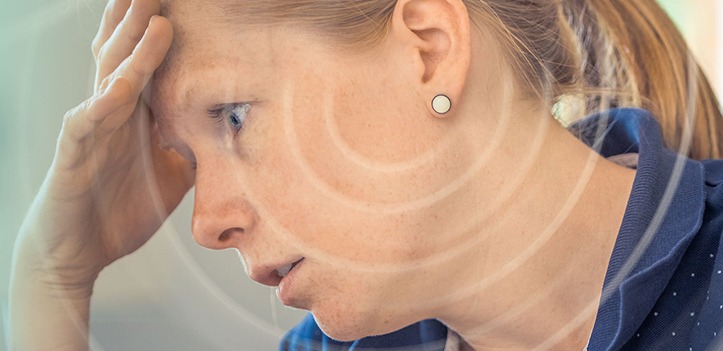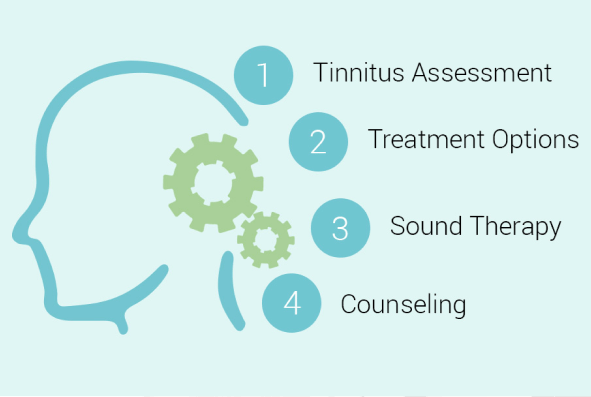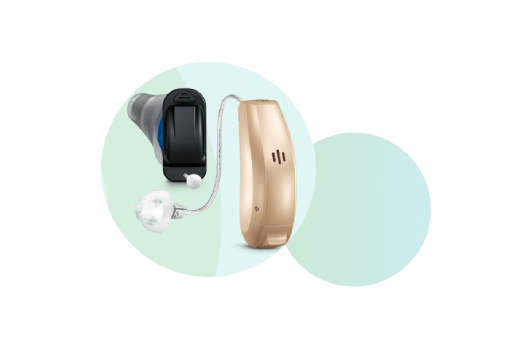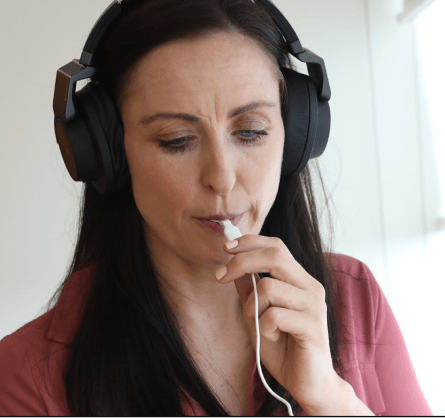
TINNITUS MANAGEMENT
Tinnitus is the term used for the noises that people can hear in their ear/s or within their head that are generated within the body and not by any external source. It may be present all of the time, or just in certain situations. It is not a disease or a disorder, but rather a condition that can be triggered by a number of different causes.


Tinnitus management/therapy has been around for 20 years or more.
It uses a very similar approach to chronic pain management, as both use the same information pathways in the brain.
What are the causes or triggers of tinnitus?
Tinnitus is more common in people with hearing loss; however, you can have normal hearing and still have tinnitus. Many people experience temporary tinnitus following exposure to loud noise, for example at a music/rock concert, fireworks or when working with loud machinery.
Tinnitus can fluctuate, often the more stressed the louder the tinnitus, or the quieter the environment the louder the tinnitus. For some people certain noises or situations, even foods can increase the tinnitus.

Others notice that their tinnitus fluctuates with their health so that if their health is worse the tinnitus is often louder. This may be due to not feeling well and having less ability to cope with the tinnitus. Or as with a cold because your head is blocked, so you hear internal sounds louder. Or it may be somatosensory too, that means that the tinnitus can be affected by movements of the head and neck, this can be related to arthritis in the head and neck or it can be caused by jaw problems too.
Below are some common triggers or causes of tinnitus:
-
Noise exposure
-
Ear infections
-
Circulation problems
-
Some ear diseases
-
Head or neck injuries
-
Stress
-
Side effects of certain medicines
Below are some common triggers or causes of tinnitus:
-
Noise exposure
-
Ear infections
-
Circulation problems
-
Some ear diseases
-
Head or neck injuries
-
Stress
-
Side effects of certain medicines
Understanding Tinnitus
Chances are you or someone you know experiences tinnitus—a persistent ringing, buzzing, or whistling sound heard in the ears or head, with no external source. While it may seem like a problem with the ears, tinnitus often originates elsewhere in the auditory system, with the ear being just one possible contributing factor.
In this video, Prince Punnoose, Owner and Chief Clinical Audiologist at Gatwick Audiology, explains the causes, impact, and management options for tinnitus.
If you’re struggling with tinnitus or simply want to understand it better, we’re here to help.
Call us on 0333 011 7717 or email hello@gatwickaudiology.co.uk to book a consultation or speak with a member of our friendly team.
Take the first step toward managing your tinnitus today.

Tinnitus Counselling
We have helped many patients to manage their tinnitus much better with a combination of counselling, reassurance and appropriate treatment approach. Some patients will need further onwards referral on to Cognitive Behavioural Therapy to manage their anxiety and depression.
Combination Hearing Aids
Gatwick Audiology fit combination devices if these were identified as the best treatment approach. These are White noise generators within a hearing aid. These are fitted when people find that their tinnitus is still very intrusive even when they are wearing a hearing aid.


Tinnitus Treatment - Lenire
Lenire is a treatment device proven in large-scale clinical trials to reduce the symptoms of tinnitus. Use it from the comfort of home to manage your tinnitus with the help of a qualified healthcare professional. Soothing sounds and gentle electrical stimulation retrain your brain to pay less attention to your tinnitus. It uses bimodal neuromodulation to reduce the severity of tinnitus symptoms.
It uses a very similar approach to chronic pain management, as both use the same information pathways in the brain.

Headphones
Bluetooth headphones, which are provided, deliver customised sounds to activate the auditory nerve to the brain.

Tonguetip
The Tonguetip, specifically designed to treat tinnitus, sits comfortably in the closed mouth. Tiny electrodes on the Tonguetip deliver mild and safe energy pulses to the surface of the tip of the tongue.

Controller
A lightweight handheld device that controls the timing and intensity of the treatment. You can start, pause and resume the treatment session, adjust the volume of the sound, and adjust the level of the tongue stimulation.
